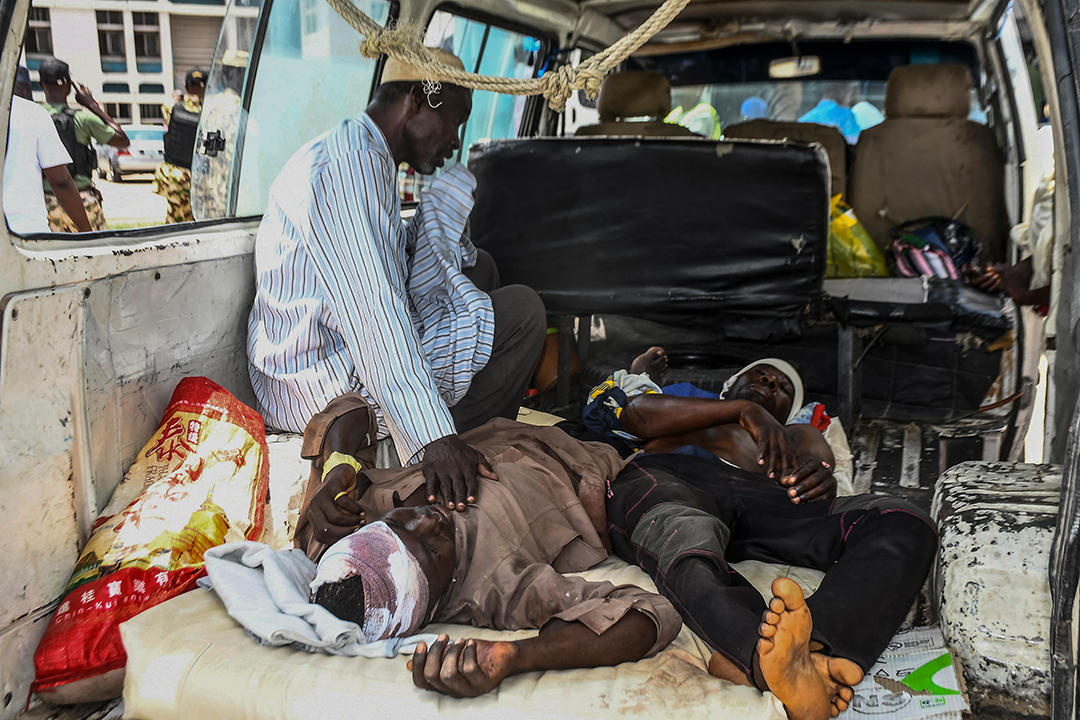
ADF STAFF
A string of suicide bombings in northern Nigeria might indicate that extremists are feeling pressure from successful military campaigns, according to observers.
The recent bombings in Gwoza, Borno State, were the first suicide attacks in Nigeria in four years. More than 30 people died, and 100 others were injured. The attacks happened after government forces reclaimed territories formerly occupied by the insurgents, particularly in the northeast.
“The recent resurgence of suicide bombings in Gwoza, Borno State has once again brought to the forefront the ongoing threat posed by terrorism and extremism in Northern Nigeria,” Alhaji Suleiman Abdul-Azeez, spokesman for the Northern Elders Forum, told Nigeria’s Saturday Vanguard.
The four Gwoza attacks are significant in a number of ways, according to analyst Al Chukwuma Okoli.
“First, they could be an act of desperation on the part of the insurgents,” Okoli wrote recently in The Conversation. “Second, they could signal a strategic shift of tactics. And lastly, they could be a form of strategic communication by the insurgents.”
The attacks, which relied on female bombers, happened in a community that hosts military and security personnel that are fighting terrorists. They also were coordinated, suggesting extensive planning.
However, they also could be a sign that terrorists who have suffered defeats to the military in recent months have lost significant members of their leadership and have seen their capacity for other action crippled, Okoli wrote.
As a result, the bombings may represent a return to an old tactic that lets terrorists show that they still can create chaos with fewer resources.
“Part of the strategic message seems to aim at increasing public fear and anxiety and disrupting the narrative that government is winning the counter-terrorism fight,” Okoli wrote.
The Gwoza bombings echoed earlier bombings in Nigeria between 2011 and 2016. Boko Haram set off bomb in markets, mosques, schools and churches. Thousands of people died.
Bombings subsided in 2016 after Nigeria’s federal government declared that it had “technically defeated” Boko Haram. For some, the recent Gwoza bombings have raised questions about whether Nigeria is returning to a new period of terror and destruction.
“Terrorism thrives on tactical opportunism, and suicide bombing serves as a key strategy in that respect,” Okoli wrote. “A resurgence of suicide terrorism in Nigeria would signal a major setback in the fight against terrorism in the country.”
Community leaders in northeastern Nigeria are calling on the government to do more to confront the causes of extremism in the region.
“One of the key factors driving suicide bombings in the region is the lack of economic opportunities and widespread poverty,” Abdul-Azeez told the Saturday Vanguard.
Dr. Sunny Ifedinma, a counterterrorism expert and the director of the Africa Counter Terrorism and Security Academy in England, has called for establishing a government agency to confront terrorism in northern Nigeria. She sees in the Gwoza bombings the fingerprint of Boko Haram’s patron, al-Qaida.
“It is like the whole chapter is reopening again and it appears a very deadly one — multiple attacks in a single day. I see the handwriting of Al-Qaeda-related terrorism because that is their trademark,” Ifedinma told the Vanguard. “There’s no way a country facing this kind of problem can do without a proper counterterrorism institution.”
The post Expert: Borno State Suicide Bombings an ‘Act of Desperation’ for Terrorists appeared first on Africa Defense Forum.










